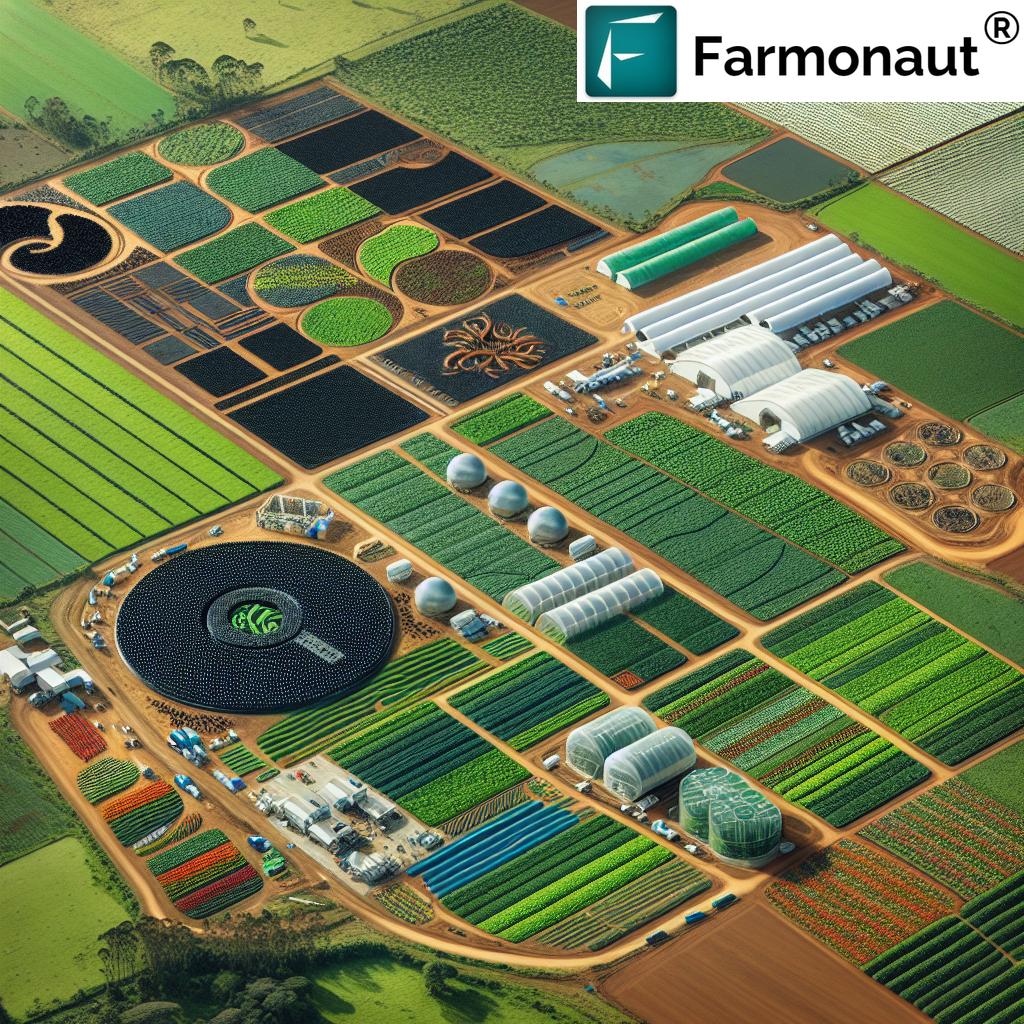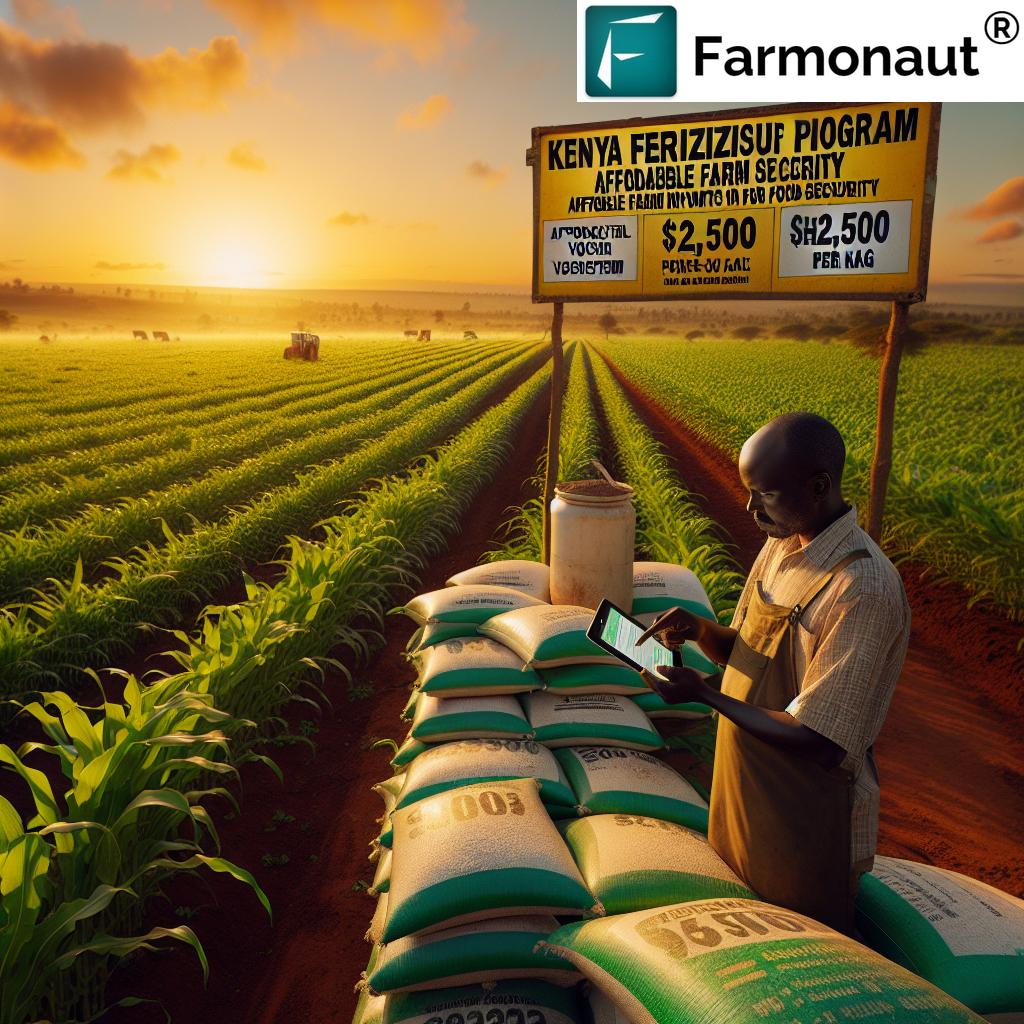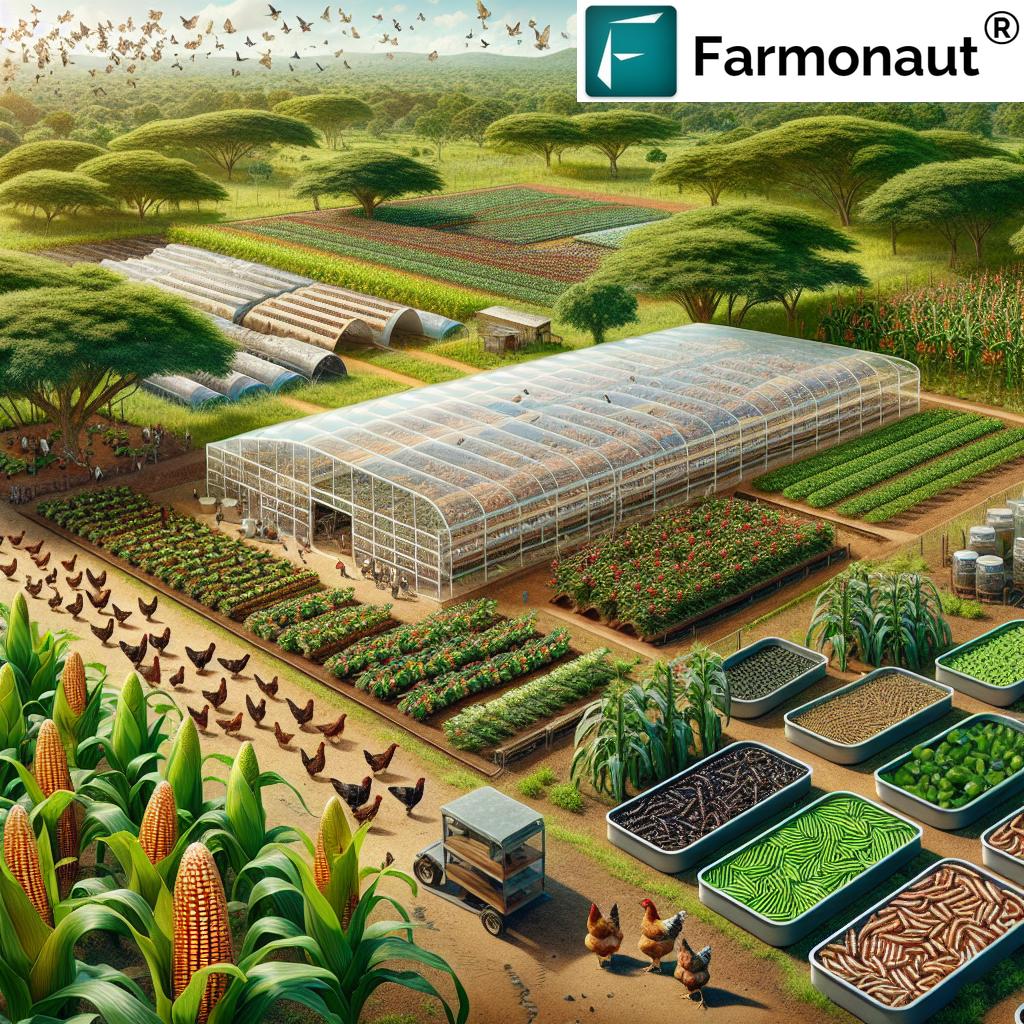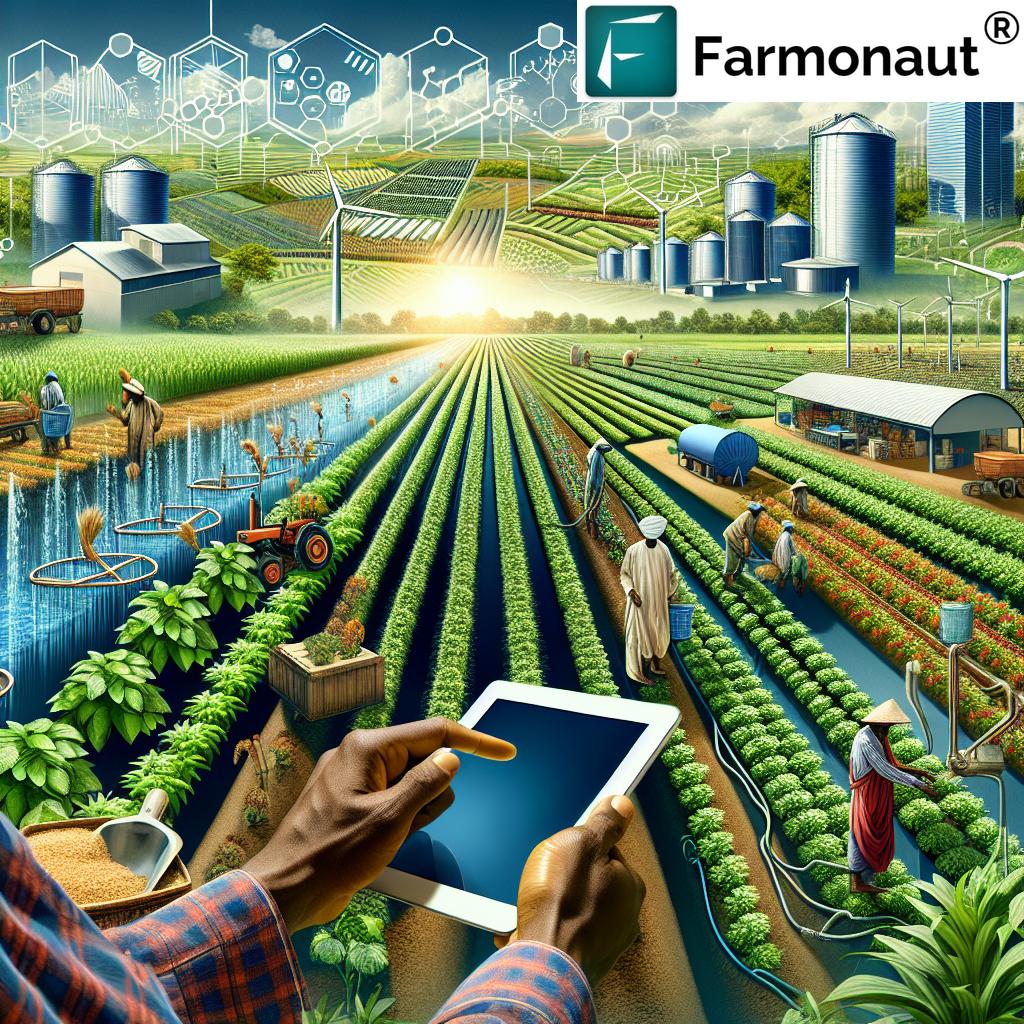Boosting Kenya’s Agri-Export: Innovative Cool Logistics Corridor Revolutionizes East African Trade
“Kenya’s ‘Cool Logistics Corridor’ aims to revolutionize agri-exports through refrigerated container shipping for flowers and vegetables.”
In the realm of international trade and agricultural development, we are witnessing a transformative partnership between Kenya and the Netherlands. This collaboration is set to reshape the landscape of East African agriculture, with a particular focus on sustainable innovations and the enhancement of agri-export solutions. At the heart of this exciting development is the innovative ‘Cool Logistics Corridor,’ a game-changing initiative that promises to revolutionize the transport of perishable goods from Kenya to global markets.
As we delve into this comprehensive exploration of the Kenya-Netherlands agricultural trade partnership, we’ll uncover the intricate details of the Cool Logistics Corridor, examine the potential impact on Kenya’s flower and vegetable exports, and discuss the broader implications for East African agricultural development. We’ll also touch upon how precision agriculture solutions, such as those offered by Farmonaut, complement these developments by providing farmers with tools to optimize crop production and contribute to sustainable farming practices in the region.
The Kenya-Netherlands Agricultural Trade Partnership: A New Era of Cooperation
The relationship between Kenya and the Netherlands in the agricultural sector is entering a new phase of enhanced cooperation and mutual benefit. This partnership is characterized by:
- A focus on sustainable agriculture innovations
- Efforts to boost agri-export solutions
- Initiatives to promote circular economy practices in agriculture
- Collaborative projects to improve port logistics, particularly in Mombasa
- Opportunities for Dutch businesses to invest in Kenya’s agricultural sector
This strengthened partnership comes at a crucial time for both nations. Kenya, as a key player in East African agriculture, is looking to expand its export capabilities and embrace more sustainable farming practices. The Netherlands, renowned for its agricultural expertise and innovation, sees Kenya as an important partner for trade and development in the region.
The Cool Logistics Corridor: A Game-Changer for Kenyan Agri-Exports
At the center of this renewed cooperation is the Cool Logistics Corridor, an innovative solution designed to address one of the most significant challenges facing Kenyan agri-exports: the efficient transport of perishable goods.
What is the Cool Logistics Corridor?
The Cool Logistics Corridor is a state-of-the-art refrigerated container shipping system that aims to revolutionize the transport of flowers, vegetables, and other perishable products from Kenya to international markets. This initiative is set to transform the way Kenyan agricultural products reach consumers around the world, ensuring freshness and quality throughout the journey.

Key Features of the Cool Logistics Corridor:
- Advanced refrigeration technology to maintain optimal temperatures
- Seamless integration with existing transport infrastructure
- Real-time monitoring systems to ensure product quality
- Reduced transit times for perishable goods
- Enhanced capacity for handling large volumes of exports
The implementation of the Cool Logistics Corridor is expected to have a significant impact on Kenya’s agricultural export sector. By providing a reliable and efficient means of transporting perishable goods, this initiative addresses one of the major bottlenecks in the Kenyan agri-export chain.
Impact on Kenya’s Flower and Vegetable Exports
Kenya is renowned for its high-quality flowers and vegetables, which are in high demand in international markets. The Cool Logistics Corridor is set to boost these exports in several ways:
- Extended Shelf Life: By maintaining optimal temperatures throughout the transport process, the Cool Logistics Corridor will help extend the shelf life of Kenyan flowers and vegetables, allowing them to reach distant markets in prime condition.
- Expanded Market Reach: With improved logistics, Kenyan exporters can target new markets that were previously challenging to access due to distance and perishability concerns.
- Reduced Waste: Better temperature control and faster transit times will significantly reduce product waste, increasing profitability for Kenyan farmers and exporters.
- Enhanced Competitiveness: The ability to deliver fresher products more consistently will strengthen Kenya’s position in the global market for flowers and vegetables.
As we consider the potential impact of the Cool Logistics Corridor, it’s worth noting how precision agriculture solutions can complement these efforts. Farmonaut, for instance, offers satellite-based crop health monitoring and AI-driven advisory systems that can help Kenyan farmers optimize their production to meet the increased demand that may result from improved export capabilities.
Explore Farmonaut’s precision agriculture solutions:
Sustainable Agriculture Innovations: A Core Focus
The Kenya-Netherlands partnership extends beyond logistics improvements, with a strong emphasis on sustainable agriculture innovations. This focus aligns with global trends towards more environmentally friendly and resource-efficient farming practices.
“The Kenya-Netherlands partnership focuses on sustainable agriculture, with innovative projects like insect-based animal feed for circular economy initiatives.”
Key Areas of Sustainable Agriculture Innovation:
- Water-efficient irrigation systems
- Organic farming techniques
- Precision agriculture technologies
- Climate-resilient crop varieties
- Integrated pest management strategies
One of the most exciting developments in this area is the exploration of insect-based animal feed as part of circular economy initiatives. This innovative approach not only addresses the need for sustainable protein sources for livestock but also contributes to waste reduction and resource efficiency in the agricultural sector.
Circular Economy in Agriculture: The Black Soldier Fly Project
A standout example of the circular economy initiatives being explored is the Black Soldier Fly (BSF) project. This innovative approach to animal feed production showcases the potential for transforming agricultural waste into valuable resources.
How the Black Soldier Fly Project Works:
- Agricultural waste is collected and used as a substrate for BSF larvae.
- The larvae feed on the waste, rapidly converting it into protein-rich biomass.
- The mature larvae are harvested and processed into high-quality animal feed.
- Residual waste from the process can be used as organic fertilizer.
This circular approach offers multiple benefits:
- Reduces agricultural waste
- Provides a sustainable source of protein for animal feed
- Decreases reliance on fishmeal and soy in animal diets
- Contributes to soil health through the production of organic fertilizer
The Black Soldier Fly project is just one example of how the Kenya-Netherlands partnership is fostering innovative solutions that address multiple challenges in the agricultural sector simultaneously.
Enhancing Port Logistics: The Mombasa Connection
A critical component of the Cool Logistics Corridor is the enhancement of port logistics, with a particular focus on the Port of Mombasa. As Kenya’s primary seaport and the gateway to East Africa, Mombasa plays a crucial role in the success of the country’s agri-export initiatives.
Key Improvements at the Port of Mombasa:
- Expansion of cold storage facilities
- Implementation of advanced cargo handling systems
- Streamlined customs procedures for perishable goods
- Enhanced connectivity between the port and inland transport networks
- Training programs for port staff on handling perishable agricultural products
These improvements are designed to reduce bottlenecks, minimize handling times, and ensure that Kenyan agricultural products can move swiftly from farm to ship, maintaining their quality and freshness.
Opportunities for Dutch Businesses in Kenya
The strengthened agricultural partnership between Kenya and the Netherlands opens up significant opportunities for Dutch businesses to invest in and contribute to Kenya’s agricultural sector. These opportunities span various areas:
- Agritech Solutions: Dutch companies specializing in agricultural technology can find a receptive market for their innovations in Kenya.
- Logistics and Cold Chain Management: Expertise in refrigerated transport and storage systems is in high demand as Kenya expands its cool logistics capabilities.
- Sustainable Farming Practices: Dutch knowledge in areas like precision agriculture and water-efficient farming can help Kenyan farmers improve productivity and sustainability.
- Circular Economy Projects: There’s growing interest in circular economy initiatives, presenting opportunities for Dutch firms with experience in this area.
- Training and Capacity Building: Dutch educational institutions and consultancies can contribute to skill development in Kenya’s agricultural sector.
For Dutch businesses looking to enter the Kenyan market, it’s essential to understand the local context and partner with Kenyan entities to ensure mutual benefit and sustainable growth.

Evolving Trade Policies and Their Impact
The success of the Kenya-Netherlands agricultural partnership and the Cool Logistics Corridor initiative is closely tied to supportive trade policies. Both countries are working to create a favorable policy environment that facilitates trade and investment in the agricultural sector.
Key Policy Considerations:
- Tariff reductions on agricultural products and related technologies
- Streamlined procedures for phytosanitary certifications
- Investment protection agreements to encourage Dutch businesses in Kenya
- Harmonization of standards to facilitate smooth trade
- Policies supporting sustainable and circular economy practices in agriculture
These evolving trade policies aim to create a win-win situation, allowing Kenyan farmers and exporters to access European markets more easily while providing Dutch businesses with attractive investment opportunities in Kenya.
The Role of Precision Agriculture in Supporting Agri-Export Growth
As Kenya looks to boost its agri-export capabilities, precision agriculture technologies play a crucial role in optimizing crop production and ensuring consistent quality. Farmonaut’s satellite-based farm management solutions offer valuable tools for Kenyan farmers to enhance their productivity and meet the demands of international markets.
How Farmonaut Supports Kenyan Agri-Exports:
- Crop Health Monitoring: Real-time satellite imagery helps farmers identify and address issues promptly, ensuring high-quality produce for export.
- Resource Optimization: AI-driven insights help farmers make efficient use of water and fertilizers, reducing costs and environmental impact.
- Yield Prediction: Accurate yield forecasts enable better planning for export volumes and logistics.
- Compliance Support: Farmonaut’s data can help farmers meet international standards and certifications required for export markets.
By leveraging precision agriculture technologies like those offered by Farmonaut, Kenyan farmers can improve their competitiveness in the global market and fully capitalize on the opportunities presented by initiatives like the Cool Logistics Corridor.
Explore Farmonaut’s precision agriculture solutions:
Comparative Analysis of Kenya-Netherlands Agricultural Trade Cooperation
| Trade Aspect | Current Status | Future Potential |
|---|---|---|
| Cool Logistics Corridor Implementation | Initial stages, pilot projects underway | Full implementation expected within 2-3 years, covering major export routes |
| Flower Export Volume | Approximately 160,000 tonnes annually | Projected to increase by 30-40% within 5 years |
| Vegetable Export Volume | Around 70,000 tonnes annually | Expected growth of 50-60% in 5 years due to improved logistics |
| Sustainable Agriculture Initiatives | Several pilot projects in water efficiency and organic farming | Widespread adoption of sustainable practices across major agricultural regions |
| Circular Economy Projects | Experimental stage, focusing on waste reduction | Integration of circular economy principles in 30% of agricultural operations |
| Port Logistics Efficiency | Moderate, with some bottlenecks in handling perishables | High efficiency with dedicated facilities for agricultural exports, reducing transit times by 40% |
The Broader Impact on East African Agricultural Development
While the Cool Logistics Corridor and associated initiatives are primarily focused on Kenya, their impact is likely to extend across East Africa. As a regional economic powerhouse, Kenya’s agricultural advancements have the potential to create ripple effects throughout neighboring countries.
Potential Regional Benefits:
- Knowledge Transfer: Innovations in sustainable agriculture and logistics can be shared with other East African nations.
- Regional Integration: Improved logistics corridors could facilitate increased intra-regional trade in agricultural products.
- Investment Attraction: Success in Kenya may encourage similar investments in agricultural infrastructure across the region.
- Standardization: The adoption of international standards for agricultural exports in Kenya could drive similar improvements in neighboring countries.
- Collaborative Research: Joint research initiatives between Kenyan and Dutch institutions could benefit the broader East African agricultural sector.
As these developments unfold, it’s crucial for stakeholders across East Africa to monitor progress and explore opportunities for collaboration and knowledge sharing.
Challenges and Considerations
While the Kenya-Netherlands agricultural partnership and the Cool Logistics Corridor initiative offer significant opportunities, there are also challenges to consider:
- Infrastructure Development: Implementing the Cool Logistics Corridor requires substantial investment in infrastructure, which may take time to complete.
- Farmer Adaptation: Kenyan farmers may need support and training to adapt to new technologies and meet international export standards.
- Market Competition: As Kenya’s export capabilities improve, it may face increased competition in international markets.
- Environmental Concerns: Balancing increased agricultural production with sustainability goals will be crucial.
- Policy Alignment: Ensuring that trade policies and regulations in both Kenya and the Netherlands support the initiative’s goals.
Addressing these challenges will require ongoing collaboration between Kenyan and Dutch stakeholders, as well as input from international experts and organizations.
The Future of Kenya’s Agri-Export Sector
As we look to the future, the Cool Logistics Corridor and the broader Kenya-Netherlands agricultural partnership hold the promise of transforming Kenya’s agri-export sector. We anticipate:
- A significant increase in the volume and value of Kenyan agricultural exports
- Greater diversification of export products and target markets
- Improved livelihoods for Kenyan farmers through access to international markets
- Enhanced reputation for Kenyan agricultural products in terms of quality and sustainability
- Increased foreign investment in Kenya’s agricultural sector
The success of these initiatives could position Kenya as a model for agricultural development and international cooperation in Africa, potentially leading to similar partnerships and projects across the continent.
Conclusion: A New Chapter in East African Agriculture
The innovative Cool Logistics Corridor and the strengthened agricultural partnership between Kenya and the Netherlands mark the beginning of a new chapter in East African agriculture. By addressing critical challenges in the export of perishable goods and promoting sustainable farming practices, these initiatives have the potential to revolutionize Kenya’s agricultural sector and boost its position in the global market.
As these developments unfold, the integration of precision agriculture technologies, such as those offered by Farmonaut, will play a crucial role in helping Kenyan farmers optimize their production and meet the demands of international markets. The combination of improved logistics, sustainable farming practices, and data-driven decision-making tools sets the stage for a more prosperous and sustainable future for Kenyan agriculture.
We look forward to witnessing the positive impact of these initiatives on Kenya’s agricultural sector, its farmers, and the broader East African region in the years to come.
Explore how Farmonaut can support your agricultural operations:
Farmonaut API
API Developer Docs
FAQ Section
Q1: What is the Cool Logistics Corridor?
A1: The Cool Logistics Corridor is an innovative refrigerated container shipping system designed to revolutionize the transport of perishable goods, such as flowers and vegetables, from Kenya to international markets. It aims to maintain product freshness and quality throughout the journey.
Q2: How will the Cool Logistics Corridor benefit Kenyan farmers?
A2: The corridor will benefit Kenyan farmers by extending the shelf life of their products, reducing waste, expanding market reach, and enhancing the competitiveness of Kenyan agricultural exports in the global market.
Q3: What role does the Netherlands play in this initiative?
A3: The Netherlands is partnering with Kenya to share expertise in agricultural innovation, sustainable farming practices, and logistics management. Dutch businesses are also exploring investment opportunities in Kenya’s agricultural sector.
Q4: How does the Black Soldier Fly project contribute to sustainable agriculture?
A4: The Black Soldier Fly project is a circular economy initiative that converts agricultural waste into protein-rich animal feed, reducing waste and providing a sustainable alternative to traditional feed sources.
Q5: What improvements are being made to the Port of Mombasa?
A5: The Port of Mombasa is undergoing enhancements including expansion of cold storage facilities, implementation of advanced cargo handling systems, and streamlined customs procedures for perishable goods.













